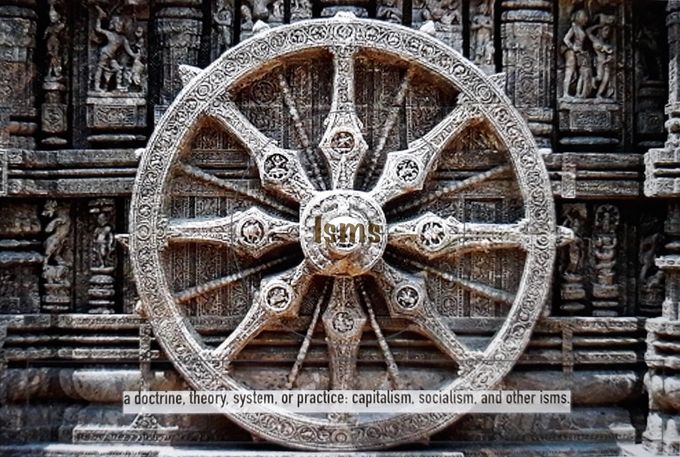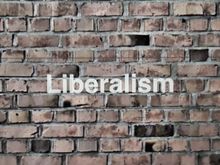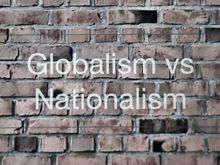Political “isms
Definition of Capitalism
an economic and political system in which a country's trade and industry are controlled by private owners for profit, rather than by the state.
"an era of free-market capitalism"
synonyms: private enterprise, free enterprise, private ownership, privatized industries, the free market, individualism; laissez-faire
What Is Capitalism?
Capitalism is an economic system in which capital goods are owned by private individuals or businesses. The production of goods and services is based on supply and demand in the general market (market economy), rather than through central planning (planned economy or command economy). The purest form of capitalism is free market or laissez-faire capitalism, in which private individuals are completely unrestrained in determining where to invest, what to produce or sell, and at which prices to exchange goods and services, operating without checks or controls. All modern countries practice a mixed capitalist system of some sort that includes government regulation of business and ownership of select industries.
https://www.investopedia.com/terms/c/capitalism.asp
Capitalism is an economic and social system in which participants privately own the means of production -- called capital. Free market competition, not a central government or regulating body, dictates production levels and prices.
How It Works
Under capitalism, prices and wages are determined by the forces of supply and demand.
Members of a capitalist economy are driven to obtain the maximum amount of utility ("benefit" or "profit") at the least cost. Privately owned industry caters to a consumer sector that wants goods and services of the highest value for the lowest price. Competition forces companies to keep prices low to attract consumers. The role of government in a capitalist society is to protect the legal rights of actors in the economy, not to regulate the free market system.
In capitalism, the most effective companies are those that create the greatest amount of utility. The most inefficient companies will be forced out of the market when the consumer discovers he can obtain the same goods for a lower cost elsewhere.
Why It Matters
Capitalism characterizes the behavior of the global economy. Since the disintegration of the Soviet Union, capitalism has become the dominant economic system worldwide.
Capitalism is often considered the antithesis of Socialism--an economic and political system where the ownership of capital (the means of production) is commonly owned. Socialist industry and production is regulated by the central government.
The Efficient Market hypothesis, an ideal of capitalism, states that finance market prices are always at the correct level at any given time considering all public information and expectations. Supporters of this theory believe that prices are necessarily always fair and correct. Dissidents believe that prices are often the result of random mistakes and misunderstandings and do not always represent the true value of a stock.
Through the ongoing balancing act of supply and demand, a capitalist economy is constantly striving to reach a level of long-term equilibrium where supply matches demand causing prices to stabilize. In the real world, political policy, natural weather events, consumer confidence and a whole host of other outside effects constantly affect the market, making the long-term equilibrium goal nearly impossible to achieve.
https://www.merriam-webster.com/dictionary/capitalism#learn-more
Definition of Marxism
the economic and political theory and practice originated by Karl Marx and Friedrich Engels that holds that actions and human institutions are economically determined, that the class struggle is the basic agency of historical change, and that capitalism will ultimately be superseded by communism
RELATED WORDS
communism, totalitarianism, socialism, collectivism, Maoism, Leninism, Bolshevism, Fabianism
https://www.dictionary.com/browse/marxism?s=t
: the political, economic, and social principles and policies advocated by Marx
especially : a theory and practice of socialism (see SOCIALISM sense 3) including the labor theory of value, dialectical materialism, the class struggle, and dictatorship of the proletariat until the establishment of a classless society
First Known Use of Marxism
1883, in the meaning defined above
https://www.merriam-webster.com/dictionary/Marxism
Marxism & International Relations
Marxism is a political and social theory that argues that social change comes about through economic class struggle. Karl Marx and Friedrich Engels developed the theory in the 19th century. Marxism formed the philosophical basis for the rise of communism in the early 20th century. Important works include The Communist Manifesto and Das Kapital. Let's take a quick look at some of the key principles of Marxism.
https://study.com/academy/lesson/marxist-theory-definition-impact-on-politics.html
Definition of Globalism
: a national policy of treating the whole world as a proper sphere for political influence
— compare IMPERIALISM, INTERNATIONALISM
Examples of globalism in a Sentence
Recent Examples on the Web
Voters in Ohio, Wisconsin, Pennsylvania and beyond had had it with globalism, had it with open borders and had it with trade deals that gutted our manufacturing and gave an upper hand to China.
— Fox News, "Mainstream media hysterics over Helsinki meeting," 18 July 2018
Schwarzman sought to explain to Xi why Trump believes Americans feel shortchanged by globalism and the China trade deficit, Rudd said.
— Michael Kranish, Washington Post, "Trump’s China whisperer: How billionaire Stephen Schwarzman has sought to keep the president close to Beijing," 12 Mar. 2018
https://www.merriam-webster.com/dictionary/globalism
Globalism
the idea that events in one country cannot be separated from those in another, and that a government should consider the effects of its actions on the rest of the world:
There had been hopes that the euro would lead to a golden age of economic globalism.
https://dictionary.cambridge.org/us/dictionary/english/globalism
Definition of communitarian
: of or relating to social organization in small cooperative partially collectivist communities
Examples of communitarian in a Sentence
Recent Examples on the Web
The Scandinavian farmers who settled there in the 1800s had brought with them a communitarian mind-set born of necessity.
— Jennifer Szalai, New York Times, "How Conservatives Bet Big on Wisconsin and Won," 11 July 2018
Nonprofits are supposed to be nongovernmental, a communitarian response to big government and big business.
— Nives Dolšak, Washington Post, "The Oxfam scandal shows that, yes, nonprofits can behave badly. So why aren’t they overseen like for-profits?," 6 Mar. 2018
https://www.merriam-webster.com/dictionary/communitarian
Communitarianism, social and political philosophy that emphasizes the importance of community in the functioning of political life, in the analysis and evaluation of political institutions, and in understanding human identity and well-being. It arose in the 1980s as a critique of two prominent philosophical schools: contemporary liberalism, which seeks to protect and enhance personal autonomy and individual rights in part through the activity of government, and libertarianism, a form of liberalism (sometimes called “classical liberalism”) that aims to protect individual rights—especially the rights to liberty and property—through strict limits on governmental power.
There are strong communitarian elements in many modern and historical political and religious belief systems—e.g., in the Hebrew Bible (Old Testament) and the Christian New Testament (Acts 4:32: “Now the whole group of those who believed were of one heart and soul, and no one claimed private ownership of any possessions, but everything they owned was held in common”); in the early Islamic concept of shūrā (“consultation”); in Confucianism; in Roman Catholic social thought (the papal encyclical Rerum Novarum [1891]); in moderate conservatism (“To be attached to the subdivision, to love the little platoon we belong to in society, is the first principle…of public affections”—Edmund Burke); and in social democracy, especially Fabianism. Communitarian ideas have also played a significant role in public life through their incorporation into the electoral platforms and policies of Western political leaders of the late 20th and early 21st centuries, including British Prime Minister Tony Blair, Dutch Prime Minister Jan Peter Balkenende, and U.S. Presidents Bill Clinton and Barack Obama.
Varieties Of Communitarianism
The term communitarian was coined in 1841 by John Goodwyn Barmby, a leader of the British Chartist movement, who used it to refer to utopian socialists and others who experimented with unusual communal lifestyles. It was rarely used in the generations that followed.
It was not until the 1980s that the term gained currency through its association with the work of a small group of mostly American political philosophers who argued for the importance of the common good in opposition to contemporary liberals and libertarians, who emphasized the good for individuals, particularly including personal autonomy and individual rights. The Canadian philosopher Charles Taylor and the American political theorist Michael Sandel were among the most prominent scholars of this brand of communitarianism. Other political theorists and philosophers who were often cited as communitarians in this sense, or whose work exhibited elements of such communitarian thinking, included Shlomo Avineri, Seyla Benhabib, Avner de-Shalit, Jean Bethke Elshtain, Amitai Etzioni, William A. Galston, Alasdair MacIntyre, Philip Selznick, and Michael Walzer.
During the same period, students of East Asian politics and society used communitarianism to describe the social thinking within authoritarian societies such as China, Singapore, and Malaysia, which extolled social obligations and the importance of the common good and accorded much less weight to autonomy and rights. Indeed, these societies viewed individuals as more or less interchangeable cells who find meaning in their contribution to the social whole rather than as free agents. Scholars of this kind of communitarianism included the American political theorist Russell A. Fox and the Singaporean diplomat Bilahari Kausikan.
In 1990 Etzioni and Galston founded a third school, known as “responsive” communitarianism. Its members formulated a platform based on their shared political principles, and the ideas in it were eventually elaborated in academic and popular books and periodicals, gaining thereby a measure of political currency, mainly in the West. The main thesis of responsive communitarianism is that people face two major sources of normativity, that of the common good and that of autonomy and rights, neither of which in principle should take precedence over the other.
https://www.britannica.com/topic/communitarianism
Definition of Socialism
a political and economic theory of social organization which advocates that the means of production, distribution, and exchange should be owned or regulated by the community as a whole.
synonyms: leftism, Fabianism, syndicalism, consumer socialism, utopian socialism, welfarism; More
policy or practice based on the political and economic theory of socialism.
synonyms: leftism, Fabianism, syndicalism, consumer socialism, utopian socialism, welfarism; More
(in Marxist theory) a transitional social state between the overthrow of capitalism and the realization of Communism.
What Is Socialism?
Socialism is a populist economic and political system based on public ownership (also known as collective or common ownership) of the means of production. Those means include the machinery, tools, and factories used to produce goods that aim to directly satisfy human needs. Communism and socialism are umbrella terms referring to two left-wing schools of economic thought; both oppose capitalism, but socialism predates the "Communist Manifesto," an 1848 pamphlet by Karl Marx and Friedrich Engels, by a few decades.
In a purely socialist system, all legal production and distribution decisions are made by the government, and individuals rely on the state for everything from food to healthcare. The government determines the output and pricing levels of these goods and services.
https://www.investopedia.com/terms/s/socialism.asp
Socialism vs. Social Democracy: Usage Guide
In the many years since socialism entered English around 1830, it has acquired several different meanings. It refers to a system of social organization in which private property and the distribution of income are subject to social control, but the conception of that control has varied, and the term has been interpreted in widely diverging ways, ranging from statist to libertarian, from Marxist to liberal. In the modern era, "pure" socialism has been seen only rarely and usually briefly in a few Communist regimes. Far more common are systems of social democracy, now often referred to as democratic socialism, in which extensive state regulation, with limited state ownership, has been employed by democratically elected governments (as in Sweden and Denmark) in the belief that it produces a fair distribution of income without impairing economic growth.
https://www.merriam-webster.com/dictionary/socialism
What’s The Difference Between Socialism And Communism?
Socialism has three main meanings:
1. a theory or system of social organization that advocates the vesting of the ownership and control of the means of production and distribution, of capital, land, etc., in the community as a whole.
2. procedure or practice in accordance with this theory.
3. (in Marxist theory) the stage following capitalism in the transition of a society to communism, characterized by the imperfect implementation of collectivist principles.
Socialism is a social theory .. makes sense. It theorizes that a collective cooperation of citizens will make all governmental institutions public. For example, no one will receive a healthcare bill when going to the doctor because they, and everyone else, have paid a hefty amount in government taxes. That’s where the collective cooperation comes in.
Communism, on the other hand, is a branch of socialism. It’s similar in that it’s still founded on the idea of collective cooperation, but differs in that communists believe that cooperation should be run by a totalitarian government made up of one and only one government.
https://www.dictionary.com/e/socialism-democracy/
Definition of Fascism
any ideology or movement inspired by Italian Fascism, such as German National Socialism; any right-wing nationalist ideology or movement with an authoritarian and hierarchical structure that is fundamentally opposed to democracy and liberalism
any ideology, movement, programme, tendency, etc, that may be characterized as right-wing, chauvinist, authoritarian, etc
prejudice in relation to the subject specifiedbody fascism
https://www.dictionary.com/browse/fascism
1 often capitalized : a political philosophy, movement, or regime (such as that of the Fascisti) that exalts nation and often race above the individual and that stands for a centralized autocratic government headed by a dictatorial leader, severe economic and social regimentation, and forcible suppression of opposition
2: a tendency toward or actual exercise of strong autocratic or dictatorial control
The Italian Origin of Fascism
The English words fascism and fascist are borrowings from Italian fascismo and fascista, derivatives of fascio (plural fasci), “bundle, fasces, group.” Fascista was first used in 1914 to refer to members of a fascio, or political group. In 1919, fascista was applied to the black-shirted members of Benito Mussolini’s organization, the Fasci di combattimento (“combat groups”), who seized power in Italy in 1922. Playing on the word fascista, Mussolini’s party adopted the fasces, a bundle of rods with an ax among them, as a symbol of the Italian people united and obedient to the single authority of the state.
https://www.merriam-webster.com/dictionary/fascism
Definition of Nationalism
1: loyalty and devotion to a nation
especially : a sense of national consciousness (see CONSCIOUSNESS sense 1c) exalting one nation above all others and placing primary emphasis on promotion of its culture and interests as opposed to those of other nations or supranational groups
Intense nationalism was one of the causes of the war.
2: a nationalist movement or government
opposing nationalisms
The Difference Between Nationalism, Patriotism, Sectionalism, and Jingoism
Nationalism has a number of near-synonyms, each of which carries its own distinct meaning. Patriotism is similar insofar as it emphasizes strong feelings for one’s country, but it does not necessarily imply an attitude of superiority. Sectionalism resembles nationalism in its suggestion of a geopolitical group pursuing its self-interest, but the group in question is usually smaller than an entire nation. Jingoism closely resembles nationalism in suggesting feelings of cultural superiority, but unlike nationalism, it always implies military aggressiveness.
Examples of nationalism in a Sentence
The war was caused by nationalism and greed.
Nazism's almost epic nationalism appealed to downtrodden Germans still suffering the humiliation of being defeated in World War I.
https://www.merriam-webster.com/dictionary/nationalism
Definition of liberalism
1: the quality or state of being liberal
2 a often capitalized : a movement in modern Protestantism emphasizing intellectual liberty and the spiritual and ethical content of Christianity
b: a theory in economics emphasizing individual freedom from restraint and usually based on free competition, the self-regulating market, and the gold standard (see GOLD STANDARD sense 1)
c: a political philosophy based on belief in progress, the essential goodness of the human race, and the autonomy (see AUTONOMY sense 2) of the individual and standing for the protection of political and civil liberties
specifically : such a philosophy that considers government as a crucial instrument for amelioration of social inequities (such as those involving race, gender, or class)
d capitalized : the principles and policies of a Liberal (see LIBERAL entry 1 sense 6b) party
Examples of liberalism in a Sentence
liberalism had always claimed to stand for the greatest social good
Recent Examples on the Web
If the goal is a postracial America, why does racial identity continue to be liberalism’s overriding obsession?
— Jason L. Riley, WSJ, "Is Liberal Racism a Horse of a Different Color?," 7 Aug. 2018
Leaving Sanders supporters’ criticism of neoliberal sellouts to one side, a labor-liberal alliance committed to both economic and social liberalism remains the party’s center of gravity and ideological anchor.
— Sam Rosenfeld, Vox, "The Democratic Party is moving steadily leftward. So why does the left still distrust it?," 22 June 2018
https://www.merriam-webster.com/dictionary/liberalism
Liberalism, political doctrine that takes protecting and enhancing the freedom of the individual to be the central problem of politics. Liberals typically believe that government is necessary to protect individuals from being harmed by others, but they also recognize that government itself can pose a threat to liberty. As the revolutionary American pamphleteer Thomas Paine expressed it in Common Sense (1776), government is at best “a necessary evil.” Laws, judges, and police are needed to secure the individual’s life and liberty, but their coercive power may also be turned against him. The problem, then, is to devise a system that gives government the power necessary to protect individual liberty but also prevents those who govern from abusing that power.
The problem is compounded when one asks whether this is all that government can or should do on behalf of individual freedom. Some liberals—the so-called neoclassical liberals, or libertarians—answer that it is. Since the late 19th century, however, most liberals have insisted that the powers of government can promote as well as protect the freedom of the individual. According to modern liberalism, the chief task of government is to remove obstacles that prevent individuals from living freely or from fully realizing their potential. Such obstacles include poverty, disease, discrimination, and ignorance. The disagreement among liberals over whether government should promote individual freedom rather than merely protect it is reflected to some extent in the different prevailing conceptions of liberalism in the United States and Europe since the late 20th century. In the United States liberalism is associated with the welfare-state policies of the New Deal program of the Democratic administration of Pres. Franklin D. Roosevelt, whereas in Europe it is more commonly associated with a commitment to limited government and laissez-faire economic policies (see below Contemporary liberalism).
This article discusses the political foundations and history of liberalism from the 17th century to the present. For coverage of classical and contemporary philosophical liberalism, see political philosophy. For biographies of individual philosophers, see John Locke; John Stuart Mill; John Rawls.
General Characteristics
Liberalism is derived from two related features of Western culture. The first is the West’s preoccupation with individuality, as compared to the emphasis in other civilizations on status, caste, and tradition. Throughout much of history, the individual has been submerged in and subordinate to his clan, tribe, ethnic group, or kingdom. Liberalism is the culmination of developments in Western society that produced a sense of the importance of human individuality, a liberation of the individual from complete subservience to the group, and a relaxation of the tight hold of custom, law, and authority. In this respect, liberalism stands for the emancipation of the individual. See also individualism.
Liberalism also derives from the practice of adversariality in European political and economic life, a process in which institutionalized competition—such as the competition between different political parties in electoral contests, between prosecution and defense in adversary procedure, or between different producers in a market economy (see monopoly and competition)—generates a dynamic social order.
https://www.britannica.com/topic/liberalism
Communism, Socialism, Capitalism, and Democracy
Domination by a government of all political, social, and economic activities in a nation. Totalitarianism is a phenomenon of the twentieth century: earlier forms of despotism and autocracy lacked the technical capacity to control every aspect of life. The term is applied both to fascist governments (see fascism) and to many forms of communism.
https://www.dictionary.com/browse/totalitarianism
Communism is one of our top all-time lookups, and user comments suggest that’s because it is often used in opaque ways. In some sources, communism is equated with socialism; in others, it is contrasted with democracy and capitalism. Part of this confusion stems from the fact that the word communism has been applied to varying political systems over time. When it was first used in English prose, communism referred to an economic and political theory that advocated the abolition of private property and the common sharing of all resources among a group of people, and it was often used interchangeably with the word socialism by 19th-century writers. The differences between communism and socialism are still debated, but generally English speakers used communism to refer to the political and economic ideologies that find their origin in Karl Marx’s theory of revolutionary socialism, which advocates a proletariat overthrow of capitalist structures within a society, societal and communal ownership and governance of the means of production, and the eventual establishment of a classless society. The most well-known expression of Marx’s theories is the 20th-century Bolshevism of the U.S.S.R., in which the state, through a single authoritarian party, controls a society’s economy and social activities with the goal of realizing Marx’s theories.
Communism is often contrasted with capitalism and democracy, though these can be false equivalencies depending on the usage. Capitalism refers to an economic theory in which a society’s means of production are held by private individuals or organizations, not the government, and where prices, distribution of goods, and products are determined by a free market. It can be contrasted with the economic theories of communism, though the word communism is used of both political and economic theories. Democracy refers to a system of government in which supreme power is vested in the people and exercised through a system of direct or indirect representation which is decided through periodic free elections. Democracy is contrasted with communism primarily because the 20th-century communism of the U.S.S.R. was characterized by an authoritarian government, whereas the democracy of the 20th-century U.S. was characterized by a representative government.
https://www.merriam-webster.com/dictionary/capitalism
Who invented socialism and communism?
Our modern ideas of socialism and communism tend to come from what Karl Marx outlined in The Communist Manifesto and what was later implemented in Russia by Vladimir Lenin and his followers (the Bolsheviks). Marx’s manifesto called for a complete overhaul of capitalist systems of the time. It advocated for the working class (the proletariat) to uprise against the aristocracy and other elites (the bourgeoisie), followed by the implementation of a new society where everyone was equal. That sounds great on paper, but the way it played out in Russia was a bloody revolution (including the arrest and execution of Czar Nicholas II and his family). In the 1920s, Joseph Stalin took over, and he established a completely totalitarian regime. Stalin’s government was marked by widespread famine, poverty, and death.
https://www.dictionary.com/e/socialism-democracy/
Definition of Totalitarianism
1 : centralized control by an autocratic authority
2 : the political concept that the citizen should be totally subject to an absolute state authority
Synonyms
absolutism, autarchy, authoritarianism, autocracy, Caesarism, czarism (also tsarism), despotism, dictatorship, totalism, tyranny
Examples of totalitarianism in a Sentence
in times of crisis, when a nation's people are frightened, there are often calls for totalitarianism
https://www.merriam-webster.com/dictionary/totalitarianism
Totalitarian
1. relating to a system of government that is centralized and dictatorial and requires complete subservience to the state.
"a totalitarian regime"
synonyms: authoritarian, autocratic, autarchic, dictatorial, tyrannical, oppressive, repressive, one-party, monocratic, absolute, absolutist, undemocratic, antidemocratic, illiberal, despotic, fascist, fascistic, Nazi, neo-Nazi, Stalinist; dystopian
"a totalitarian state"
noun
1. a person advocating a totalitarian system of government.
synonyms: authoritarian, autocrat, dictator, tyrant, absolutist, despot, fascist, Nazi, neo-Nazi, Stalinist
antonyms: democrat, liberal
Examples of fascism in a Sentence
From the first hours of Hitler's invasion of the Soviet Union, the propagandists on both sides of the conflict portrayed the struggle in stark, Manichaean language. The totalitarian nature of both regimes made this inevitable. On one side stood Hitler, fascism, the myth of German supremacy; on the other side stood Stalin, communism, and the international proletarian revolution.
https://www.merriam-webster.com/dictionary/fascism
Difference Between Globalism & Nationalism
Globalism is an economic policy, foreign policy. For better socio-economic relationships in between countries. Nationalism is a *ideology and not policy* inside the country. It is a pro-national thinking for development and upliftment of one's country.Jul 6, 2018
https://www.quora.com/What-are-the-main-differences-between-nationalism-globalism
Some commentators have argued that nationalism vs. globalism is emerging as the main political divide in global politics. Nationalism vs. globalism have also been described as the main political divide in elections such as the 2016 U.S. presidential election, with nationalist Donald Trump against globalist Hillary Clinton, or the 2017 French presidential election, with nationalist Marine Le Pen against globalist Emmanuel Macron.
https://www.conservapedia.com/Nationalism_vs._globalism
Globalism vs. Nationalism: The Ideological Struggle of the 21st Century
For much of the 20 th century, ideological discussions and debates have centered on liberal versus conservative, left versus right. No longer. The ideological divide of the 21 st century is emerging as globalism versus nationalism.
https://graceuniversity.edu/iip/2017/01/globalism-vs-nationalism-the-ideological-struggle-of-the-21st-century/
How Environmentalism fits in?
Environmentalism: Evidence Suggests it Was Always and Only About Achieving World Government
Guest Blogger / 1 week ago May 27, 2019
Guest Opinion: Dr. Tim Ball
It is common sense to protect our environment, but what has occurred for 50 years is exploitation of that idea for a socialist agenda. We wasted 50 years believing that humans are not natural, and everything they do is destructive. We wasted and continue to waste trillions of dollars on unnecessary policies and useless technologies, all based on false assumptions, pseudoscience, and emotional bullying.
We now know 50 years later that every single prediction concerning the environmental demise of the Earth and the people made in the original Earth Day Report was wrong. We also know that every additional claim, such as overpopulation, global warming, sea level rise, desertification, deforestation, and sea ice collapse, among many others, were wrong. I challenge anyone to produce empirical evidence that proves anything happening today is outside any long-term record of natural activity.
Convince the people that the entire world is threatened, and you can convince them that no nation can save it. It is then easy to convince them that a world government is the only way to save the planet. The trouble is that none of it is true. The World is in good shape, and people are living longer and healthier lives in every nation.
Like the majority of people, Elaine Dewar assumed environmentalists were commendable even heroic people. She began research for a book singing their praises. It didn’t take long to learn the basic premise was wrong. Following the traditional and proper methodology, rarely seen these days, Dewar identified the duplicitous characters involved in the Canadian environmental movement and laid them out in her book Cloak of Green. She spent five days at the UN with Canadian Maurice Strong arguably the world architect of official environmentalism. He was praised excessively, as in this article, “The World Mourns One of its Greats: Maurice Strong Dies, His Legacy Lives On.” Another article recognized the evil he personified, “Who is Global Warming Propagandist Maurice Strong?” After the five days, Dewar concluded,
“Strong was using the U.N. as a platform to sell a global environment crisis and the Global Governance Agenda.”
The environmental movement as the basis for a socialist world government was in the minds of people like Strong and fellow members of the Club of Rome in the late 1960s. However, it was launched on the world on April 22, 1970, by a small group centered at Stanford University. The date is critical because it was the first Earth Day. It is also very important to know the choice was deliberate because it is the birthday of Vladimir Lenin. The environmental movement was a deliberate program to impose communism on the world.
The underlying theme of the environmental movement makes the following false assumptions.
That almost all change is a result of human activity. The UN claim, using computer models, that 95%+ of temperature increase since 1950 is due to human-produced CO2. This works because they don’t consider most natural causes.
That humans are unnatural. The 1990 “Greenpeace Report on Global Warming” says CO2 is added to the atmosphere “naturally and unnaturally.” Yes, that unnatural production is from humans.
That we are not part of nature. Ingrid Newkirk, co-founder of People for the Ethical Treatment of Animals (PETA) comment explains.
“Mankind is a cancer; we’re the biggest blight on the face of the earth.” “If you haven’t given voluntary human extinction much thought before, the idea of a world with no people in it may seem strange. But, if you give it a chance, I think you might agree that the extinction of Homo Sapiens would mean survival for millions if not billions, of Earth-dwelling species. Phasing out the human race will solve every problem on earth, social and environmental.”
That we should be eliminated or dramatically reduced in number. In May 2015, the Pope produced Laudate Si an Encyclical about his view of the state of the Earth. It is a socialist diatribe, but that is not surprising since the main contributor was Hans Schellnhuber, a pantheist. This group believes the world population should be below 1 billion people.
That if the western world reduces levels of CO2 production, the rest of the world will follow. China has 2,363 coal plants and is constructing 1,171 more. The US has 15 and is not constructing any.
The US can build as many clean-burning coal plants as they want and burn coal pollution free. They don’t have to worry about CO2 because it is not a pollutant and is not causing climate change. No significant environmental problems are threatening the world. All the stories about impending environmental doom are fictions deliberately created to make people surrender control to the government. It is time to break the emotional stranglehold of those who used the environment to create global socialism.
https://wattsupwiththat.com/2019/05/27/environmentalism-evidence-shows-it-was-always-and-only-about-achieving-world-government/
Latest comments
10.11 | 17:41
Hello & I listen to your u tubes often. Is God Winks books scriptural?
thank you
23.01 | 15:16
So true, I love this scripture reminder too.
Philippians 4:7
King James Version
7 And the peace of God, which passeth all understanding, shall keep your hearts and minds through Christ Jesus.
22.01 | 03:39
I can so relate. As a brand new Christian, the church I was in quickly slipped into Inner Healing and psychology. Lots more to tell, but when your faith is in Christ for everything, you're full of Joy
19.12 | 15:34
Good advice Greg. Thanks for your encouragement and scriptural references.
God bless you and Merry Christmas.
Share this page













